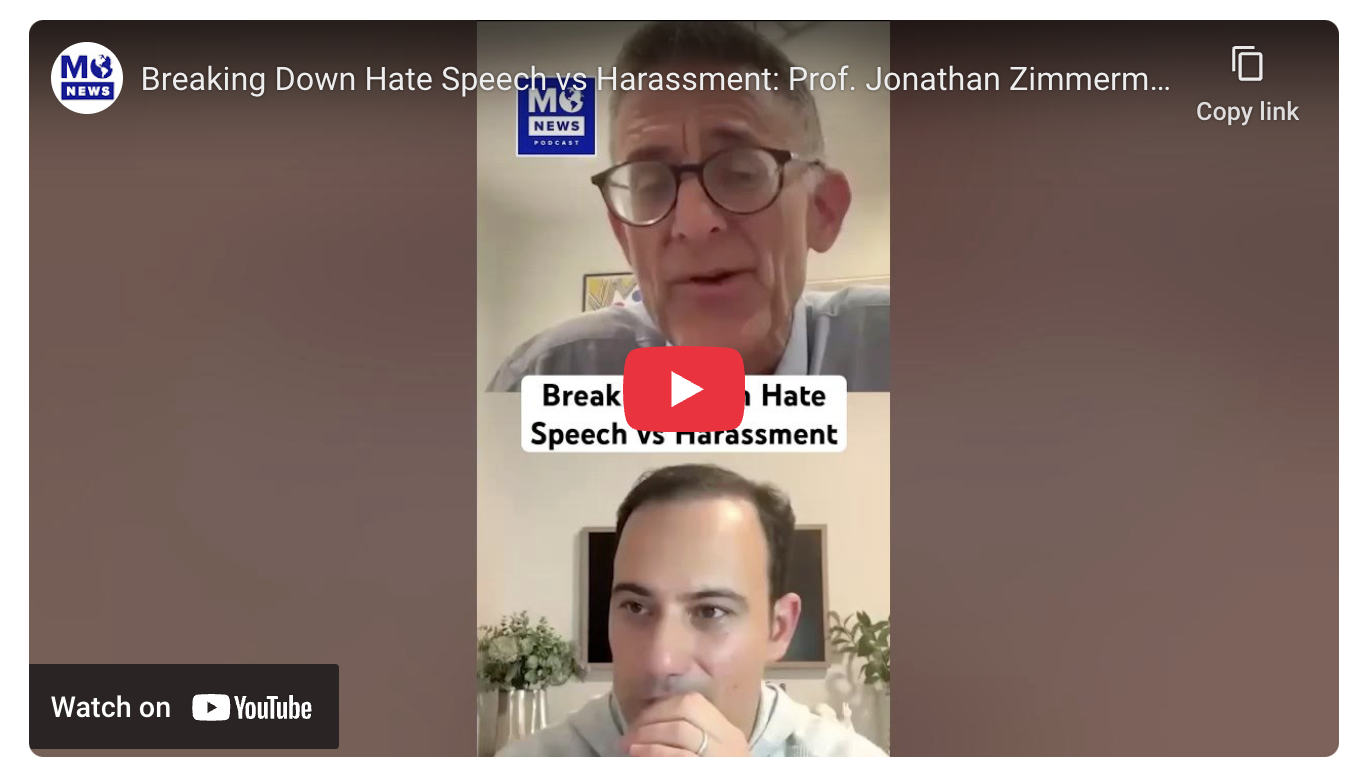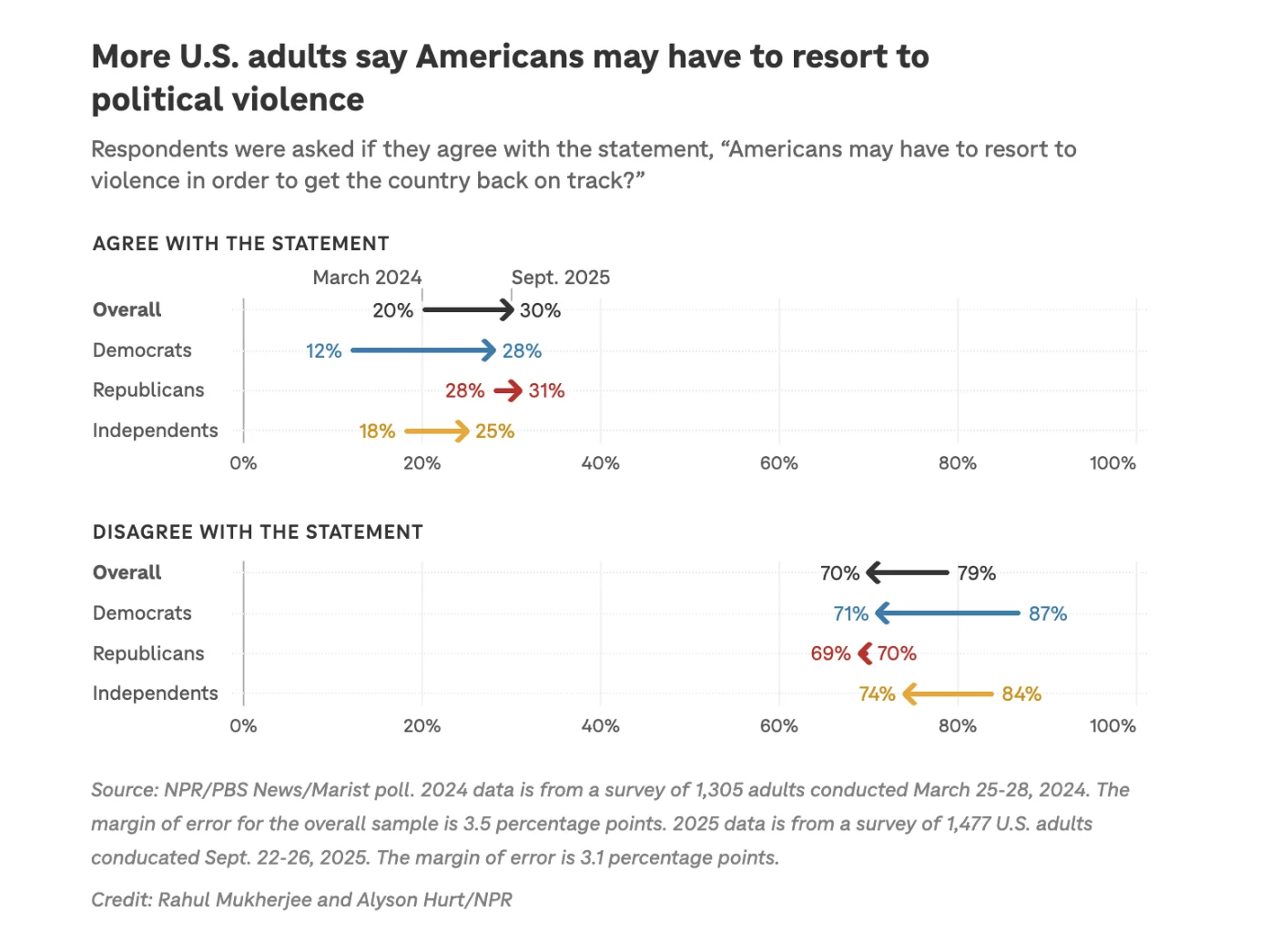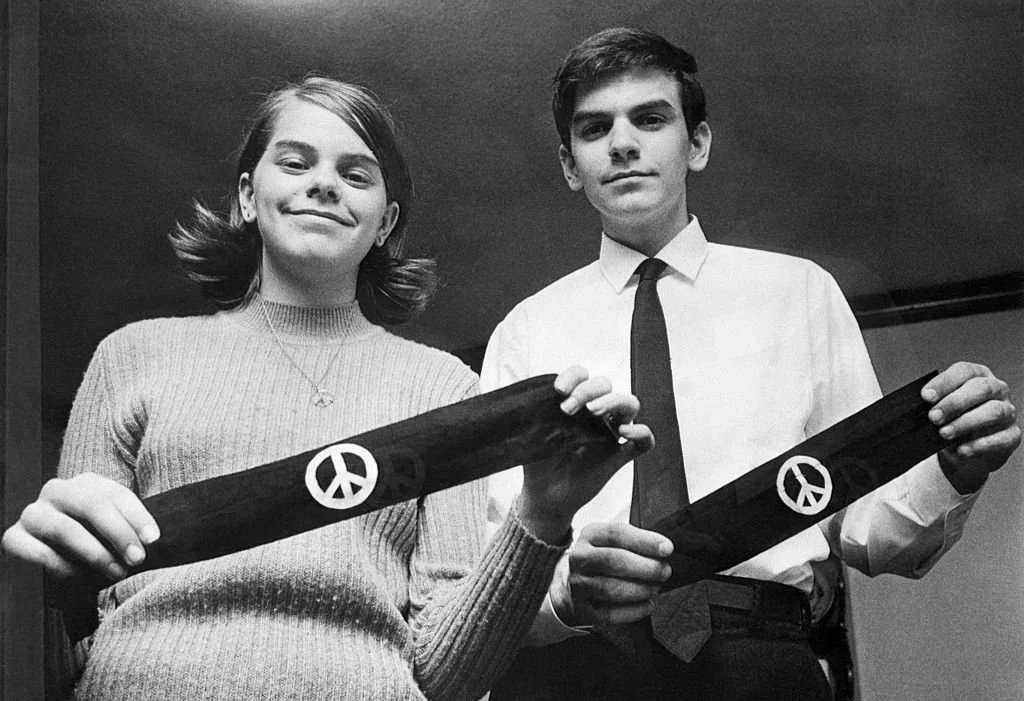Hate Speech & Free Speech: A Look At The History Of First Amendment Protections
Where is the line between free speech and hate speech? That’s where context and content come into play, Jonathan Zimmerman, Professor of History of Education at the University of Pennsylvania, explained in our latest Mo News Premium Workshop.
There is a long history in the U.S. of free speech debates: From the Founding Fathers, to McCarthyism, to today’s campus protests and cancel culture fights. Recent headlines — from Charlie Kirk’s murder to Jimmy Kimmel’s suspension — highlight just how charged the free speech debate has become in 2025.
Polls show a majority of Americans now believe free speech is in a bad place — and a growing number of both Democrats and Republicans support political violence as a means to getting the country “back on track.”
“In a very polarized society, we have a rough consensus among Republicans and Democrats, that free speech is in a bad place… I think that’s a good thing in the sense that it’s a necessary, although not a sufficient, condition for making anything better. It’s a certain kind of agreement, and it’s one of the only things we do agree on,” Zimmerman said.
THE LITTLE GUY BENEFITS MOST FROM FREE SPEECH
Frederick Douglass, Susan B. Anthony, and Martin Luther King Jr. relied on speech as their only tool against injustice. “Free speech was all they had,” according to Zimmerman. “If you took that away, they couldn’t make the case against injustice… If you take away free speech, it’s the people at the bottom who lose.”
Pivotal cases: The landmark 1969 Supreme Court case, Tinker v. Des Moines Independent Community School District ruled that “neither students nor teachers shed their First Amendment rights at the schoolhouse gate,” Zimmerman explained.
Back in 1965 during the Vietnam War, a group of students – including Mary Beth Tinker – silently protested the war by wearing black armbands to their school in Des Moines. The protest angered school officials, leading the administration to suspend the students who protested, including Tinker. Tinker sued the school district for violating her right to exercise free speech.
Mary Beth Tinker and her brother, John, with the armbands. 1968.
THEN VS. NOW: Many years later, Tinker spoke to Zimmerman’s ‘History of Education’ class at the University of Pennsylvania. Students pressed her about the difference between then and now — suggesting that in the past, she was fighting the good fight. But today, figures like conservative commentator Ben Shapiro are simply saying hurtful things. Tinker pushed back, noting that in the 1960s, many at her school saw her protest as hateful.
NOT-SO-FREE SPEECH IN U.S. HISTORY: In 1798, the Alien and Sedition Acts jailed critics of the U.S. government; the Espionage Act of 1917 and the Sedition Act of 1918 during World War I and II criminalized anti-war sentiment; and suspected communists lost jobs and reputations during the McCarthy era.
It wasn’t until the Vietnam War era that the courts gave individuals more free speech rights. The landmark case Cohen v. California protected a man who wore a jacket saying “F*** the Draft.”
“Censorship is the most natural thing in the world. And that’s why we have to resist it. I’m not questioning that people say and hear things that you or I might find hateful. What I am questioning is whether we should empower the government, any government, to decide what is so hateful that nobody should be able to say it or hear it. I don’t trust the government enough to do that, and I’m astonished that anyone would,” Zimmerman said.
HATE SPEECH IS PROTECTED
Zimmerman explains that feelings are subjective, and what feels hateful is also individual. Painful speech, hateful speech, is shielded by the First Amendment unless it crosses into incitement or harassment.
“Why should we allow hate speech?” Zimmerman says to look at Salman Rushdie. To millions worldwide, Rushdie’s writing is seen as deeply offensive — even “hate speech” — that has led to assassination attempts. Rushdie’s novel The Satanic Verses caused a major backlash among some in the Muslim community, with the Iranian Supreme Leader issuing a fatwa or death threat against him.
But others praise him for taking a courageous stand against censorship. The example shows how subjective “hate speech” is.
In the U.S., where freedom of speech stands out among nations, conduct is what crosses the line for hateful content. Using a slur in public is protected; repeatedly targeting someone outside their home is harassment — and punishable.
It comes as 4 in 5 Americans (80%) agree, at least slightly, that “words can be violence,” according to the National Speech Index by FIRE.
CAMPUS QUESTIONS
From anti-Israel protests to the backlash against conservative speakers, campuses continue to push the conversation about what constitutes free speech. “It’s not enough to say that the speech could cause violence,” Zimmerman explains. “There has to be, and this is the court’s language, a direct and immediate threat of violence.”
And do those free speech rights extend to non-citizens?
Earlier this week, a federal judge in Massachusetts ruled that the Trump administration unlawfully used the threat of deportation to silence noncitizens who protested in support of Palestinians — violating the First Amendment.
In a blistering 161-page opinion, which he called the most significant of his 30 years on the bench, Judge William Young said President Trump, Secretary of State Marco Rubio, and Homeland Security Secretary Kristi Noem weaponized immigration law to intimidate foreign students and chill campus activism. Young affirmed that noncitizens lawfully present in the U.S. have the same free speech rights as citizens.
Young, a Reagan appointee, likened masked ICE agents detaining students to “cowardly desperados and the despised Ku Klux Klan” and warned that Trump’s “palpable misunderstanding that the government simply cannot seek retribution for speech he disdains poses a great threat to Americans’ freedom of speech.”
A group of university professors sued on behalf of detained students, including Mahmoud Khalil of Columbia University, a green card holder who was arrested in March for his campus activism. Students at Tufts and Georgetown faced similar arrests.
The White House denounced the ruling as “outrageous” and vowed to continue revoking visas of those it deems a threat. The ruling did not immediately order changes to administration policies, however.
🎧 Listen to the full conversation with Zimmerman — and get access to past workshops on topics from media literacy to the MAHA movement — on Mo News Premium. Join today.



